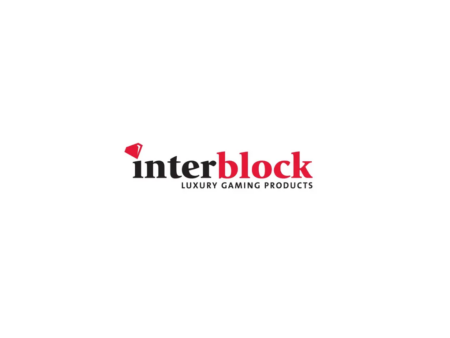The Malta Gaming Authority (MGA) and the Alcohol and Gaming Commission of Ontario (AGCO) have recently announced the signing of a new Memorandum of Understanding (MoU). This collaboration marks a pivotal moment in regulatory cooperation, as two leading regulatory bodies come together to enhance their shared objectives.
Understanding the Memorandum of Understanding (MoU)
A Memorandum of Understanding (MoU) serves as a non-legally binding agreement that outlines the intent of collaborative progress within an existing contract framework. Despite geographical distances and jurisdictional variances, the MGA and AGCO have cultivated a robust partnership grounded in common values and goals.
The primary objective of the MoU is to strengthen the existing relationship between the two regulatory bodies. This entails facilitating mutual assistance at an operational level and fostering the exchange of regulatory information and expertise. By formalizing their cooperation, the MGA and AGCO aim to streamline regulatory practices and address common challenges more effectively.
Recent Developments and Implications
The announcement of the MoU comes amidst notable developments within the gaming industry. Swintt, a prominent gaming provider, recently obtained approval from the AGCO to operate in the Canadian province of Ontario, marking its debut in the North American market. This milestone underscores the growing internationalization of gaming operations and the importance of regulatory collaboration in facilitating market entry.
However, it is essential to note that alongside advancements, regulatory bodies must also contend with emerging challenges. The AGCO’s decision to prohibit WBA boxing bets in Ontario due to concerns regarding insider betting and match-fixing highlights the ongoing efforts to uphold integrity within the gaming ecosystem. Such regulatory interventions underscore the commitment of authorities to maintain fairness and transparency in gaming activities.
Insights from Key Stakeholders
Commenting on the MoU with AGCO, MGA CEO Charles Mizzi emphasized the significance of ongoing collaboration in achieving tangible outcomes. He reiterated the commitment of both organizations to enhance inter-jurisdictional cooperation and improve regulatory standards. This sentiment reflects a shared dedication to promoting responsible gaming practices and safeguarding consumer interests across borders.
Future Outlook and Strategic Initiatives
The signing of the MoU between the MGA and AGCO sets the stage for deeper collaboration and regulatory alignment in the years ahead. As the gaming landscape continues to evolve, regulatory bodies must adapt to emerging trends and technological advancements. By fostering a culture of cooperation and knowledge exchange, the MGA and AGCO are poised to address evolving regulatory challenges and promote a safe and sustainable gaming environment.
Conclusion: Signing of the MoU
The partnership between the Malta Gaming Authority and the Alcohol and Gaming Commission of Ontario represents a significant milestone in global regulatory cooperation. Through the signing of the MoU, both organizations reaffirm their commitment to fostering regulatory excellence and enhancing consumer protection in the gaming industry. As the gaming landscape continues to evolve, collaborative initiatives like these play a crucial role in shaping the future of responsible gaming practices worldwide.
FAQs About the Partnership between Malta Gaming Authority and the Alcohol and Gaming Commission of Ontario
1. What is the Memorandum of Understanding (MoU) between the MGA and AGCO?
The Memorandum of Understanding (MoU) is a non-legally binding agreement signed between the Malta Gaming Authority (MGA) and the Alcohol and Gaming Commission of Ontario (AGCO). It signifies their commitment to collaborative progress within their existing regulatory frameworks.
2. What is the purpose of the MoU between the MGA and AGCO?
The primary objective of the MoU is to strengthen the relationship between the MGA and AGCO. It facilitates mutual assistance at an operational level and promotes the exchange of regulatory information and expertise. Through this partnership, the regulatory bodies aim to enhance regulatory practices and address common challenges more effectively.
3. What recent developments have occurred in the gaming industry related to the MGA and AGCO?
Swintt, a leading gaming provider, recently obtained approval from the AGCO to operate in the Canadian province of Ontario, marking its debut in the North American market. Additionally, the AGCO made a decision to prohibit WBA boxing bets in Ontario due to concerns about insider betting and match-fixing.
4. What insights were shared by MGA CEO Charles Mizzi regarding the MoU?
MGA CEO Charles Mizzi emphasized the significance of ongoing collaboration with AGCO in achieving tangible outcomes. He highlighted the commitment of both organizations to enhance inter-jurisdictional cooperation and improve regulatory standards to promote responsible gaming practices and safeguard consumer interests.
5. What is the future outlook for regulatory cooperation between the MGA and AGCO?
The signing of the MoU sets the stage for deeper collaboration and regulatory alignment in the future. Both organizations are poised to address evolving regulatory challenges and promote a safe and sustainable gaming environment through continued cooperation and knowledge exchange.
6. How does the partnership between the MGA and AGCO benefit the gaming industry?
The partnership between the MGA and AGCO signifies a significant milestone in global regulatory cooperation. It enhances regulatory standards, promotes responsible gaming practices, and ensures consumer protection across borders, thereby contributing to the overall integrity and sustainability of the gaming industry.
7. What are the key takeaways from the article regarding regulatory cooperation in the gaming industry?
The article highlights the importance of collaborative efforts between regulatory bodies such as the MGA and AGCO in addressing common challenges and promoting responsible gaming practices. It underscores the need for ongoing cooperation and knowledge exchange to adapt to evolving trends and technological advancements in the gaming landscape.


















